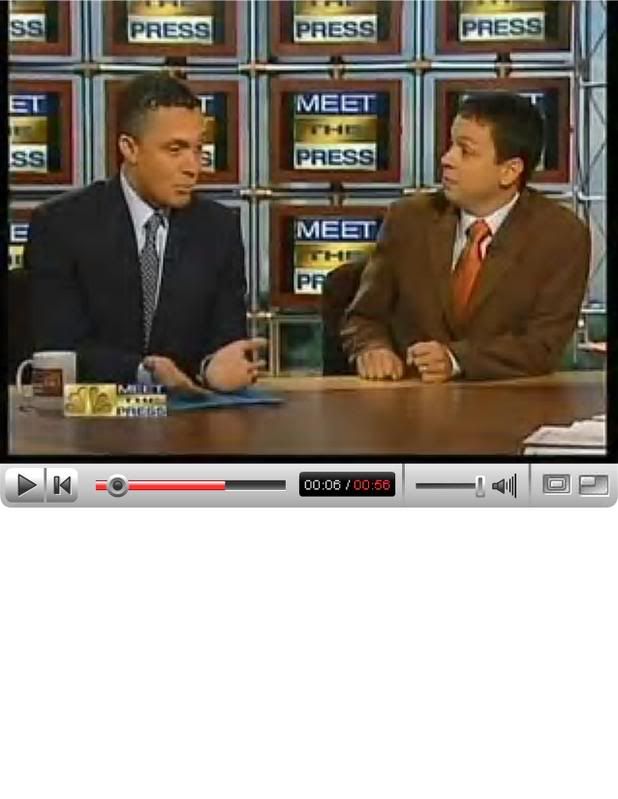Today we are back on track. The last two weeks have been spent on
How to Talk to the Main Stream Media. While I personally thought they would be very useful, they did not get overwhelming responses. That's OK though, it was good exercise for me to run through my own personal do's and don'ts when dealing with the media.
How to Talk to Small Business People has a more "traditional" goal. Once again we will be trying to convince people who should be agreeing with us that we have the better ideas, and that our candidates are the better ones because they espouse these ideas and values. We need to do this in such a way as that our subjects will not be immediately turned off to our arguments before we even get started.
Speaking of getting started....
Cross Posted at
Florida KossacksSmall businesses
create more jobs and are the
sources of more innovations than any other segment of our society. They have a very strong sense of self reliance and personal accountability. Community is highly valued by Small Business People. The operate their businesses and employ people in our communities. They raise their families and worship together with us in our communities. They give back to their communities by serving in Kiwanis, Optimists, and all other manner of civic organizations, both international and local in scope.
Small Business People also vote overwhelmingly Republican. They are mistaken in their understanding of what the Republican Party stands for (by its deeds, not by its words). Most Small Business People are moderate by nature - they want their products and services to be sought out by the widest range of potential customers possible. Time and again, that has been shown to be in the "broad middle".
Define the Overarching StrategyWhat is the best strategy to use when deciding
How to Talk to Small Business People? It is not much different than in talking to any other segment of society you wish to persuade. The first thing to do is to identify which among
your values is most applicable to this subject. Emphasize those values that are shared by the subjects, in this case Small Business People. Any facilitator of conflict resolution worth his or her own salt will first seek to identify areas of common agreement. We should view this exercise no differently.
Small Business People value
personal accountability. They know full well that given an even chance, they and they alone, are responsible for their own success or failure. Small business people value
community. They raise their families, worship and run their businesses in their communities. They are the backbone of the Kiwanis, the Optimists and other civic organizations. They run for City Council, belong to the Chamber of Commerce and support their churches and local charities.
Small Business People value independence and freedom from over burdensome governmental regulations. Their trade group is the
National Federation of Independent Businesses. The
issues that are important to them include competition, government and regulatory reform and tax relief. The NFIB website proudly proclaims:
Advocacy is a top priority for NFIB.
Their list of
legislative accomplishments includes tax relief and "tort reform" amongst others.
Define the TerminologySmall Business People tend to self identify as Republicans because they believe the Republican Party is the party of business. They are only partially correct. The Republican Party is the party of big business. The Gopers give a lot of lip service to small business but that's about all they really give them. All the major legislative efforts of the Republicans have been centered on benefiting big business. Very little is actually done with small business people as the major focus.
Tax rollbacks on the very wealthy are a good example. The Republicans claimed that rolling back the tax cuts for the very wealthy would negatively impact small business people, and therefore hurt job creation, the economy, mother hood and apple pie. The truth of the matter is that most small business people are able to arrange their financial affairs in such a way as to not show very high taxable incomes. Where they are running into real problems is with the
Alternative Minimum Tax (AMT) . This is a tax scheme that was devised to keep the super rich from avoiding paying taxes at all. It has not been modified to keep up with the times, however. So now it is going to ensnare people it was never meant to cover. We can go a long way to getting small business people on our side by
making AMT reform a priority.
Fair
competition is another area that small business people are getting lied to by the Republicans. I am going to use
Wal Mart as
an example only here. Small business people don't like the idea of welfare or government subsidies. Because of their sense of
community, most of them want to provide and many do, health and other benefits for their employees. What they don't realize is that companies that hire primarily
part time employees and pay them
no benefits and low wages are getting subsidized by the government. These part time employees get free health care from the government when they get sick. Many of them are on food stamps and Aid to Families with Dependent Children. Even though they are working, many work 2 or more jobs, their incomes are still low enough to qualify for government assistance.
When you explain to a small business person that the big company he is competing with is getting these subsidies from the government, they tend to get very unhappy. Usually when they think about welfare, they only think about the
Welfare Queens ripping off the government. They don't stop to think that their competition is benefiting from the welfare system by having the government pick up the spread between a
living wage and what they are actually paying their employees. When you explain that to a small business person, the idea of a
living wage begins to look a whole lot more reasonable to them.
The other argument that Republican use against
raising the minimum wage or a living wage is that it will
cost jobs and put small business people out of business. Many states have a higher minimum wage than the Federal Minimum Wage. In Florida,
we passed a State Constitutional Amendment raising the minimum wage and indexing it for inflation.
Florida is still leading the nation in job creation. Scratch that argument. Small business people understand economics. After they get that the government is subsidizing below living wage paying employers, they are susceptible to another argument. That is that if you can't afford to pay a living wage ( not get the government to subsidize you), economically
you should not be in that business. A truly free market would force you out of business without the
government subsidies. Small Business People really get that argument.
Mangle the MemesYou are not going to get through to Small business People unless you can get past the memes that they have bee indoctrinated on since birth. Use examples to show them that the Republican Party is
not the party of rugged individualists, but is instead the party of
corporate welfare.
Small Business People tend to be on the
patriotic side. Be ready to show them that
Dems are competent to keep us safe from terrorists and will otherwise protect our national security. After all, most people now get that
Dumbya did not make us safer by invading Iraq.
Don't let them get away with calling us
"tax and spend" Dems. Remind them that it was a
Dem President who balanced the budget and left office with a surplus. Also, it is the
Dems in Congress who are bringing back
pay - go budgeting.
That's something small business people
really understand.
We have more in common with the Small business community than most people think. We have a lot more in common with them than the Republicans really do. The Gopers have just done a better job of convincing the small business community that they share their values. In fact,
we share more values in practice than the Gopers do.
If you can remember to
speak to small business people in terms of our shared values, you have a very good chance to get them away from the
Dark Side. You will at least have made them think about it.
And that's a start.



